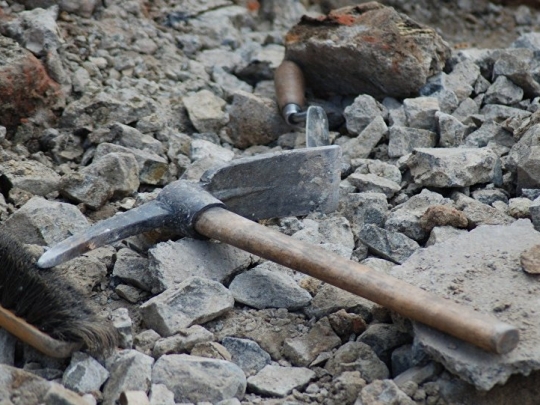Archaeologists Discover Remains of 2,000-Year-Old Jewish Settlement in Israel

The Israel Antiquities Authority (IAA) announced on Thursday that archaeologists discovered remains from a locale in Beersheba that dates back to the first century.
Artifacts found at the site included piece of an oil lamp depicting a nine-branched menorah, as well as ancient vessels and coins.
Exciting news: For the 1st time, archaeologists have unearthed the remains of a 2,000-year-old Jewish settlement in the Israeli city of Beersheba. At the site was this part of an oil lamp depicting a 9-branched menorah - one of the earliest ever found. 1/2
— Maya Margit (@MayaMargit) April 4, 2019
Credit:IAA#archaeology pic.twitter.com/dC7ziUy6di
"This is probably one of the earliest artistic depictions of a nine-branched menorah yet discovered," said Dr. Peter Fabian of Ben-Gurion University and Dr. Daniel Varga of the IAA in a statement.
2/2 Aside from the oil lamp shard, the settlement site also includes a number of interesting features, including underground hidden passageways that were likely used by Jewish rebels in 135 CE during the Bar-Kokhba Revolt against the Roman Empire.
— Maya Margit (@MayaMargit) April 4, 2019
Credit: IAA#Archaeology pic.twitter.com/2e4u3LgN7I
According to Israel Today, a few of the lamps discovered had images of a seven-branched menorah. This can be attributed to the ruling in Babylonian Talmud that only menorahs placed inside the Temple could have seven branches. Therefore, lamps that were more commonly used typically had eight to 11 branches.
The team also found a network of tunnels that were probably used by Jewish rebels around the year 135, during the Bar-Kokhba Revolt against the Roman Empire.
The site also showed signs of what scientists think might have been a fire that occurred during the Great Revolt, also known as the First Jewish-Roman War, around the year 70.
- Source : Sputnik News


















